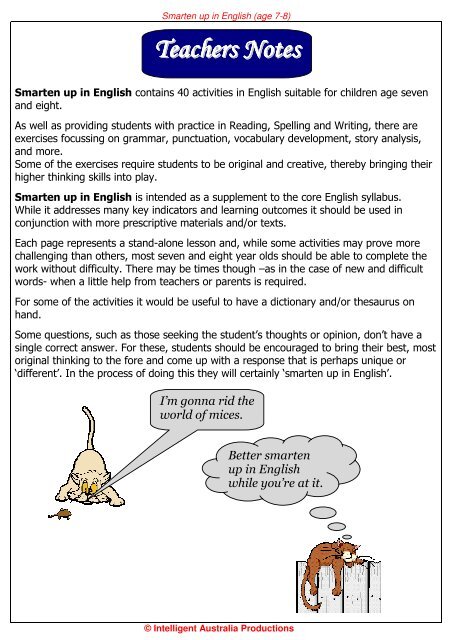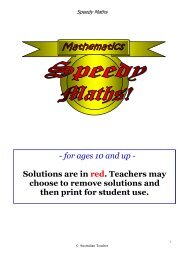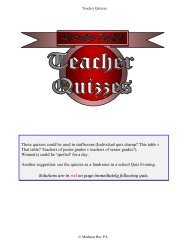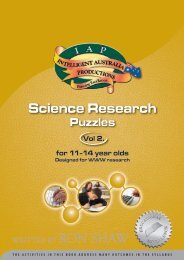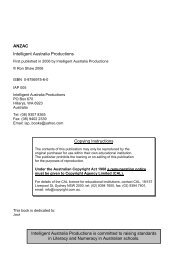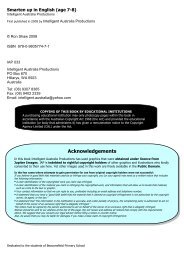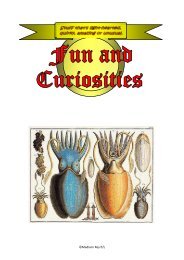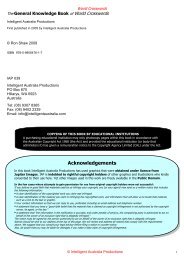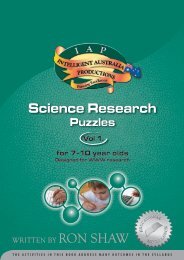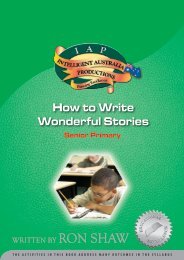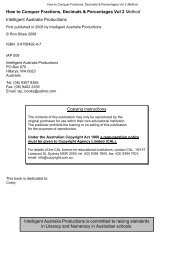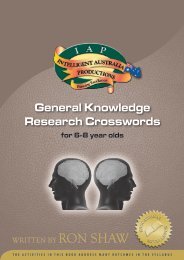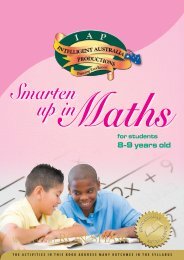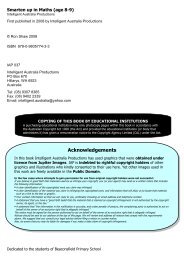Smarten up in English (age 7-8) - Australian Teacher
Smarten up in English (age 7-8) - Australian Teacher
Smarten up in English (age 7-8) - Australian Teacher
- No tags were found...
You also want an ePaper? Increase the reach of your titles
YUMPU automatically turns print PDFs into web optimized ePapers that Google loves.
<strong>Smarten</strong> <strong>up</strong> <strong>in</strong> <strong>English</strong> (<strong>age</strong> 7-8)<strong>Teacher</strong>s Notes<strong>Smarten</strong> <strong>up</strong> <strong>in</strong> <strong>English</strong> conta<strong>in</strong>s 40 activities <strong>in</strong> <strong>English</strong> suitable for children <strong>age</strong> sevenand eight.As well as provid<strong>in</strong>g students with practice <strong>in</strong> Read<strong>in</strong>g, Spell<strong>in</strong>g and Writ<strong>in</strong>g, there areexercises focuss<strong>in</strong>g on grammar, punctuation, vocabulary development, story analysis,and more.Some of the exercises require students to be orig<strong>in</strong>al and creative, thereby br<strong>in</strong>g<strong>in</strong>g theirhigher th<strong>in</strong>k<strong>in</strong>g skills <strong>in</strong>to play.<strong>Smarten</strong> <strong>up</strong> <strong>in</strong> <strong>English</strong> is <strong>in</strong>tended as a s<strong>up</strong>plement to the core <strong>English</strong> syllabus.While it addresses many key <strong>in</strong>dicators and learn<strong>in</strong>g outcomes it should be used <strong>in</strong>conjunction with more prescriptive materials and/or texts.Each p<strong>age</strong> represents a stand-alone lesson and, while some activities may prove morechalleng<strong>in</strong>g than others, most seven and eight year olds should be able to complete thework without difficulty. There may be times though –as <strong>in</strong> the case of new and difficultwords- when a little help from teachers or parents is required.For some of the activities it would be useful to have a dictionary and/or thesaurus onhand.Some questions, such as those seek<strong>in</strong>g the student’s thoughts or op<strong>in</strong>ion, don’t have as<strong>in</strong>gle correct answer. For these, students should be encour<strong>age</strong>d to br<strong>in</strong>g their best, mostorig<strong>in</strong>al th<strong>in</strong>k<strong>in</strong>g to the fore and come <strong>up</strong> with a response that is perhaps unique or‘different’. In the process of do<strong>in</strong>g this they will certa<strong>in</strong>ly ‘smarten <strong>up</strong> <strong>in</strong> <strong>English</strong>’.I’m gonna rid theworld of mices.Better smarten<strong>up</strong> <strong>in</strong> <strong>English</strong>while you’re at it.© Intelligent Australia Productions


